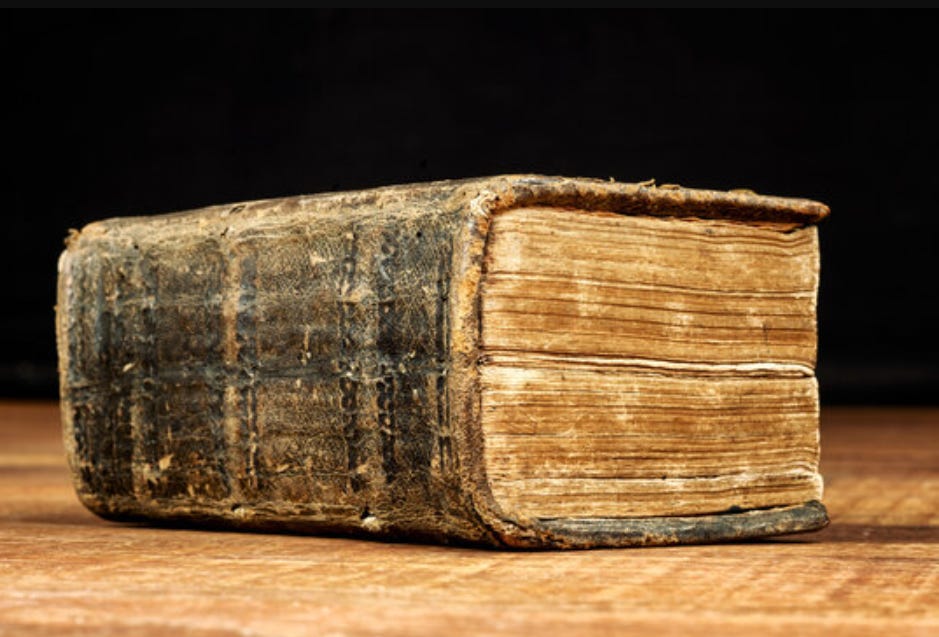If you are reading this, you are a part of a new elite cohort. Those who have retained the capacity and desire to read anything longer than a few sentences. A noble achievement, don’t let anyone else tell you otherwise.
To be honest, I too find my attention span waning with long texts these days. I subscribe to quite a few Substacks, but unless I’m in a “conscious reading mode” the emails often get marked as read and buried without even looking at them. Brainrot comes at you fast if you don’t remain vigilant.
LLMs have also changed the relationship to online text. Whereas a long-post was once indicative of great effort on the behalf of the author, now it sets of alarm bells that what you’re reading is just some AI nonsense. If I see a post on Twitter X (The Everything App) longer than two paragraphs my brain immediately becomes skeptical that I’m scanning ChatGPT output.
The well is slowly being poisoned with slop.
Even our benchmark standards for reading comprehension are year by year being reduced to pitiful levels. The new SAT has you locked into a fully digital environment, and the passage lengths for the reading section have been reduced from 500 - 700 words down to 25 - 150 words. This is no longer an exam of any sort of classical rigor, but rather a measuring tool for basic survival in the modern environment of short e-mails, short-form media, and brief posts.
What about the Books?
Where we’re going, we don’t need books. If you want information, you just query the AI. If you want entertainment, Tiktok, vidya, streaming video, doom-scrolling and all the other digital dopamine drips can placate you. If not for femgooners clinging to their steamy romance novels, half of the existing publishing industry would probably be out of business.
Men appear to be leading the exodus from the gates of literature. Whether its due to pragmatism about the present utility of books, inability to sit and focus, or a general distaste with what is being published, the lads are done with the reading. They’ve got better things to do (hopefully).
Books will always exist on some level, but their cultural relevance will continue to backslide for the foreseeable future. Novels will become like jazz music, created and consumed for a niche community that enjoys preserving a dying art form.
The Tome
There is something sentimental about a big, hefty, book. Something that you can grab and feel the weight of the work both physically, and metaphorically.
While most fiction reading nowadays is done by women, there is a certain sort of person, typically a younger man, who feels a strange pull to tackle long, dense works of literature. The length of the book is attractive rather than off-putting. It’s a large world to get lost in, it presents a mountain to climb and topple.
There’s also the hope that embedded in these 1000+ page doorstops are some hidden secrets about life and the universe. Surely an author who toils for years on such a large work has some prescient insights that they wish to elucidate.
The tome attracts the man desperately searching for answers. Who wishes to transcend above day-to-day life by spending long periods of time in a world of creation. For some with a secular bent, it functions almost as a stand-in for the bible.
When asked why anyone in their right mind would read, let alone write, a 1,100 page book David Foster Wallace said “I’m pretty lonely most of the time, and fiction’s one of the few experiences where loneliness can be both confronted and relieved”.
It was probably with some of these notions kicking through my head that I one day Googled “longest novels ever written” and proceeded to check out the first volume of Proust’s 4,215 page In Search of Lost Time from my university library.
I enjoyed volume 1 and 2. Eventually life moved on, and I didn’t have as much time to read but I’d keep coming back to the work every few years. Only recently, about 10 years since starting the book have I finally finished the final volume Time Regained.
It’s the sort of plotless book where “nothing really happens”, but also everything happens. The entirety of life is in there. The great punchline at the end is you question if you just wasted tons of time reading this thing. In search of the lost hours and days that you will never get back. But that’s life, mostly just killing time, waiting for the small moments where something really happens.
There’s this odd relationship with long books where you almost have to convince yourself that they were incomparable masterpieces. Otherwise you just burnt a bunch of time consuming nothing of merit.
But, the sheer length provides a connection that you won’t get with short-form text, or media nowadays. After spending thousands of pages in the world of this author’s creation you feel an odd kinship with the guy. With the characters of the world you’ve been immersed in.
When I was in Paris a few years back I visited a re-creation of the room where Proust spent his last years bedridden writing this book. I felt there a spiritual connection to the man a century away. It is kind of special, and something that as we throw the books away, will be missed.









This passage:
“But, the sheer length provides a connection that you won’t get with short-form text, or media nowadays. After spending thousands of pages in the world of this author’s creation you feel an odd kinship with the guy. With the characters of the world you’ve been immersed in.”
This chimes with me- reading books written by classic authors seems the only way to open up a genuine window into the time period or to understand a lesson about human nature that is still relevant today e.g. Dostoyevsky in Tsarist Russia, Dickens in Victorian England
English was always my favorite class in high school. Even though I ended up pursuing different avenues of higher education, I've kept my fondness for reading into adulthood which has preserved my attention span while very few people around me bother with any kind of intellectual writing at all. Books really are like time machines that can transport you to a bygone era. As a kid it always felt like a surreal experience, imagining the scenes and words with my head. Shout out to all the literati out there on subtack and elsewhere, I'll never stop reading.